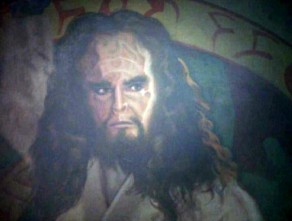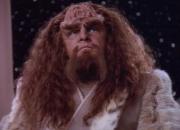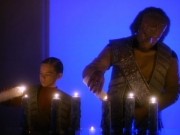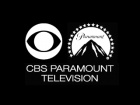KTF/Of Myth And Lore
| Line 29: | Line 29: | ||
“MajQa’” He said as he sat back down. The others did the same.<br><br> | “MajQa’” He said as he sat back down. The others did the same.<br><br> | ||
“Tell us of qeylIS. Did he really form the Empire” One of them asked anxiously.<br><br> | “Tell us of qeylIS. Did he really form the Empire” One of them asked anxiously.<br><br> | ||
| − | [[Image: | + | [[Image:Kahless_painting.jpg|292px|The painting of Kahless the Unforgettable at Boreth (2369)]]<br>The painting of Kahless the Unforgettable at Boreth (2369)<br><br>[[Image:Kahless.jpg|A clone of Kahless]]<br>A clone of Kahless<br> |
| − | + | <br><br> | |
<br><br><br> | <br><br><br> | ||
|[[Image:Rite_of_ascension.jpg|Rite of Ascension]] [[Image:Tea_ceremony.jpg|292px|Klingon Tea Ceremony]]<br> | |[[Image:Rite_of_ascension.jpg|Rite of Ascension]] [[Image:Tea_ceremony.jpg|292px|Klingon Tea Ceremony]]<br> | ||
| − | + | Komrek smiled slightly as he settled onto the log before the fire. The young ones gathered around him and sat on the ground, their eyes locked on his. He set his bat'leth beside him and drew in a deep breath. <br><br> | |
| − | + | “It was long ago when the tyrant Molor ruled the Klingon homeworld with an Iron Fist. Many feared him but qeylIS knew in his heart his rule had to end for the sake of the people and the future of the Klingon race so he went into the | |
| + | Mountains, all the way to the Kri'stak Volcano. There he took some of his hair and thrust it into the molten rock which poured out from the volcano. His hair began to burn and he cast it into the lake of Lusor, and then twisted it into a sword. With the Sword, qeylIS slew Molor, conquered the Fek'lhr, and forged the first Empire. Kahless would also use the Sword to skin the serpent of Xol, to harvest his father's field, and to carve a statue for his beloved Lukara. We celebrate this great victory every year with the Kot'baval Festival.” He said as he began to sing an old Klingon Drinking song. <br><br> | ||
Commandment seven highlights the importance of military duty as long as it does not violate the laws of God. For Klingons duty to the Empire and family are paramount (no pun intended). As pointed out above to be disloyal is to be dishonorable. Evidence of Klingon devotion to duty is abundant. A Klingon serves the Empire for life and hopes to die in the service of the Empire. This idea sums up a Klingon’s devotion to his military duties. This sense of duty also runs into ones personal and family relationships. For example the blood oath confirms the idea of duty not only to the Empire but also to ones friends. The only act that would cause a Klingon to turn from his duty is if that duty conflicts with his personal honor. And under such circumstances the request could be deemed unlawful. Worf risks economic and political ruin when he refuses to break his oath to the Federation – when Gowron confronts him and threatens that he and his house will lose everything by not joining him – Worf replies “except my honor” <br><br> | Commandment seven highlights the importance of military duty as long as it does not violate the laws of God. For Klingons duty to the Empire and family are paramount (no pun intended). As pointed out above to be disloyal is to be dishonorable. Evidence of Klingon devotion to duty is abundant. A Klingon serves the Empire for life and hopes to die in the service of the Empire. This idea sums up a Klingon’s devotion to his military duties. This sense of duty also runs into ones personal and family relationships. For example the blood oath confirms the idea of duty not only to the Empire but also to ones friends. The only act that would cause a Klingon to turn from his duty is if that duty conflicts with his personal honor. And under such circumstances the request could be deemed unlawful. Worf risks economic and political ruin when he refuses to break his oath to the Federation – when Gowron confronts him and threatens that he and his house will lose everything by not joining him – Worf replies “except my honor” <br><br> | ||
The eighth commandment "Thou shalt never lie, and shalt remain faithful to thy pledged word” deals with the personal virtues embodied in honor. Honor is the cornerstone of Klingon society and all relationships personal and professional are viewed from a position of honor. It is the guiding principal for the Empire in everything that they do. Axioms include: “word of Honor – an oath that is a stronger bond than all else. One would rather die than break a given word. It is dishonorable to deny anyone their right to do the Honorable thing and the only thing worse than incurring dishonor is refusing to recognize it as such.” Klingon society is filled with examples of the importance of honor in their daily lives and covers every conceivable event. Proverbs such as: <br><br> | The eighth commandment "Thou shalt never lie, and shalt remain faithful to thy pledged word” deals with the personal virtues embodied in honor. Honor is the cornerstone of Klingon society and all relationships personal and professional are viewed from a position of honor. It is the guiding principal for the Empire in everything that they do. Axioms include: “word of Honor – an oath that is a stronger bond than all else. One would rather die than break a given word. It is dishonorable to deny anyone their right to do the Honorable thing and the only thing worse than incurring dishonor is refusing to recognize it as such.” Klingon society is filled with examples of the importance of honor in their daily lives and covers every conceivable event. Proverbs such as: <br><br> | ||
Revision as of 23:43, 25 February 2012
Klingon Task Force Main Page

| ||||||
Culture Basics OF MYTH & LORE by Barbara M. Paul It was a clear night and the stars were shining in all their glory. The fire blazed hot as the young ones arrived for their evening of stories and lessons. Komrek was old, had seen many a battle, and carried the scars to prove it. Now in his declining years when his strength was leaving him he found his heart yearning for the Glory days when he would rush into the battle without fear yelling “Kai Kassai!”. His words striking fear into the enemy. He had one more battle left. How he would meet his death would determine his place in either Sto-Vo-Kor or Gre’Thor. He sat on a log near the fire and stared into its flames as the young would-be warriors gathered around him. He could see the fire dancing in their eyes as his mind recalled his younger days when he would sit and listen to the old storyteller partake his songs and legends upon him and the others. Now it was his turn to pass on those tales of Glory and Honor to the new generation coming into age. ‘And though I had slain a thousand foes less one, “Tell me young warriors, how do you want to be remembered? Look up! Now tell me again, what do you see?”
|
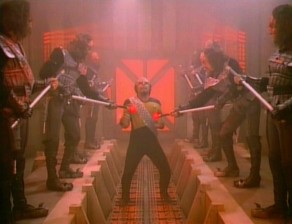 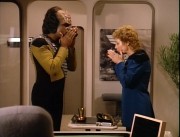 Komrek smiled slightly as he settled onto the log before the fire. The young ones gathered around him and sat on the ground, their eyes locked on his. He set his bat'leth beside him and drew in a deep breath. “It was long ago when the tyrant Molor ruled the Klingon homeworld with an Iron Fist. Many feared him but qeylIS knew in his heart his rule had to end for the sake of the people and the future of the Klingon race so he went into the
Mountains, all the way to the Kri'stak Volcano. There he took some of his hair and thrust it into the molten rock which poured out from the volcano. His hair began to burn and he cast it into the lake of Lusor, and then twisted it into a sword. With the Sword, qeylIS slew Molor, conquered the Fek'lhr, and forged the first Empire. Kahless would also use the Sword to skin the serpent of Xol, to harvest his father's field, and to carve a statue for his beloved Lukara. We celebrate this great victory every year with the Kot'baval Festival.” He said as he began to sing an old Klingon Drinking song. balth potlh law' yIn potlh puS Sources
|
|||||
